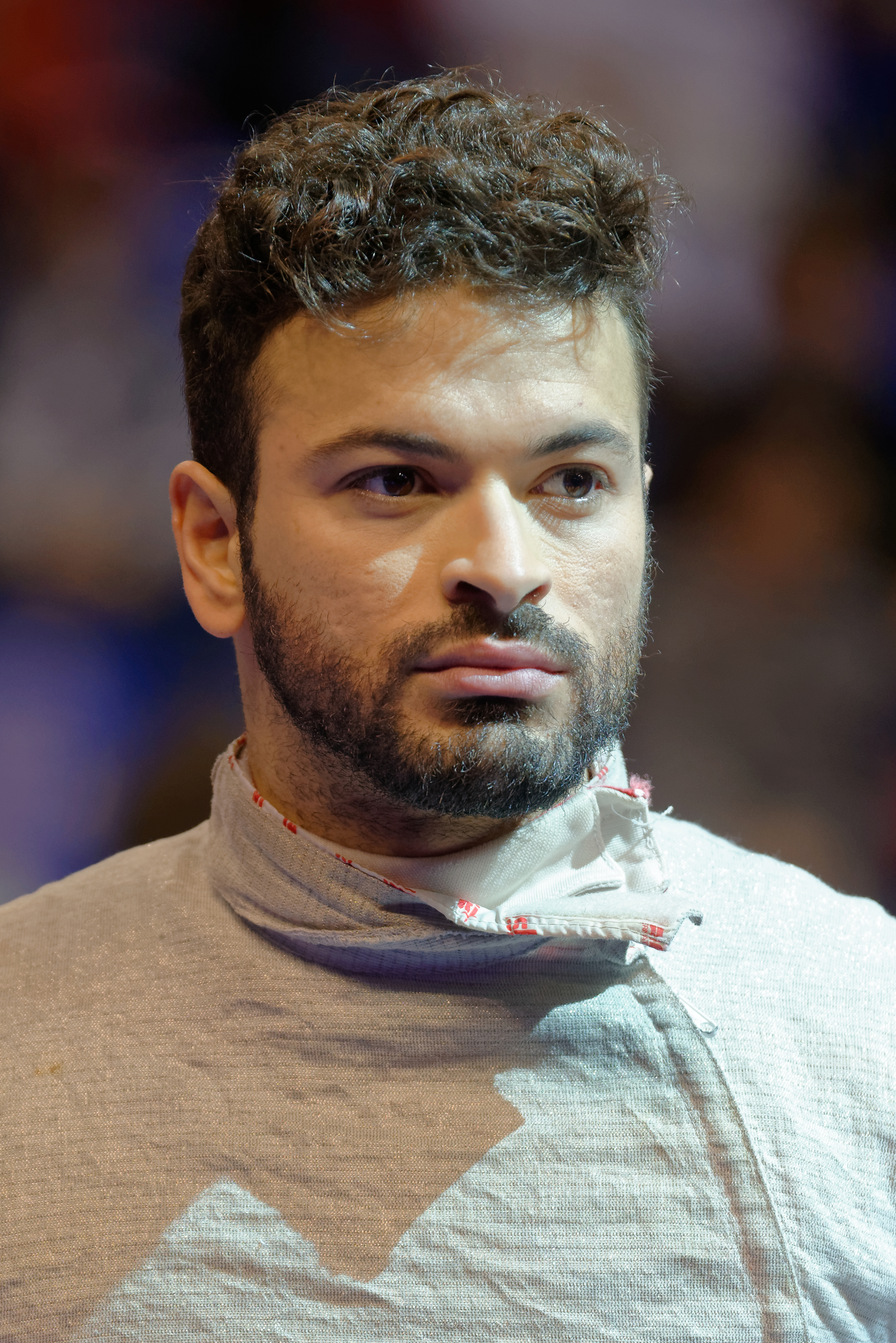1. Life
Mohamed Rayan Samandi's early life and career development set the foundation for his significant achievements in fencing, from his beginnings in Tunis to his historic early victories.
1.1. Birth and Upbringing
Mohamed Rayan Samandi was born on August 13, 1986, in Tunis, Tunisia. He began his fencing career at the age of ten, showing early promise in the sport.
1.2. Education
Information regarding Mohamed Rayan Samandi's formal education and specific fencing training beyond his initial engagement with the sport is not detailed in available sources.
1.3. Early Career
Samandi's competitive fencing journey began after he took up the sport at age ten. A significant milestone in his early career occurred in 2005 when he became the first African fencer to win a stage of the Junior World Cup. This victory took place in Viana do Castelo, Portugal, marking a historic achievement for African fencing. He further solidified his early success by claiming the gold medal at the 2007 All-Africa Games.
2. Major Activities and Achievements
Mohamed Rayan Samandi's career is distinguished by his consistent performance at the highest levels of fencing, particularly his Olympic appearances and dominance in African championships.

2.1. Olympic Participation
Samandi has made multiple attempts and successful qualifications for the Olympic Games.
He initially qualified for the 2008 Summer Olympics in Beijing, China, through his performance at the African qualifying fencing tournament held in Casablanca, Morocco. However, he was unable to participate in the competition due to a lack of necessary funding.
He successfully qualified for the 2012 Summer Olympics in London, Great Britain, as the highest-ranked African fencer. In the individual foil event, he defeated Great Britain's Husayn Rosowsky with a score of 15-8 in the first round. However, he was subsequently defeated 7-15 in the second round by the then-World No.1, Andrea Cassarà of Italy.
Samandi also secured his qualification to represent Tunisia at the 2020 Summer Olympics in Tokyo, Japan, further cementing his status as a consistent Olympic competitor.
2.2. African Championships
Samandi has been a dominant force in the African Fencing Championships, securing multiple medals throughout his career. He notably became the African champion in 2014. His medal record at the championships includes:
| Competition | Medal | Event |
|---|---|---|
| 2010 Tunis | Silver | Individual Foil |
| 2011 Cairo | Silver | Individual Foil |
| 2013 Cape Town | Bronze | Individual Foil |
| 2014 Cairo | Gold | Individual Foil |
| 2015 Cairo | Bronze | Individual Foil |
| 2016 Algiers | Bronze | Individual Foil |
2.3. Other Competition Achievements
Beyond his Olympic participations and African Championship medals, Samandi achieved significant milestones in other international competitions. In 2005, he made history by becoming the first fencer from the African continent to win a stage of the Junior World Cup, a notable achievement for the development of fencing in Africa. Two years later, he continued his success by earning a gold medal at the 2007 All-Africa Games, further demonstrating his prowess on the continental stage.
3. Personal Life
Details about Mohamed Rayan Samandi's personal attributes and current residence provide additional context to his professional career.
3.1. Residence
As of available information, Mohamed Rayan Samandi resides in London, Great Britain. He is a right-handed foil fencer, standing at 6.0 ft (1.84 m) tall and weighing 174 lb (79 kg).
4. Assessment and Impact
Mohamed Rayan Samandi's career is highly regarded for his consistent performance and his significant influence on the sport of fencing in Tunisia and across Africa.
4.1. Positive Assessment
Mohamed Rayan Samandi's career is widely regarded as highly successful and impactful, particularly within Tunisian and African fencing. His consistent performance at international events, including multiple Olympic qualifications and numerous medals at the African Championships, underscores his status as a top-tier athlete. His resilience, exemplified by his determination to qualify for the Olympics despite facing funding challenges in 2008, highlights his dedication to the sport. He is celebrated for his achievements and the recognition he has brought to fencing in his home country.
4.2. Influence
Samandi's pioneering achievements have had a profound influence on the development and promotion of fencing in Tunisia and across Africa. As the first African to win a stage of the Junior World Cup, he broke new ground and demonstrated that fencers from the continent could compete and succeed at the highest international levels. His consistent presence at the Olympic Games and his numerous continental titles serve as a significant source of inspiration for aspiring fencers in the region, encouraging greater participation and investment in the sport. He has effectively served as a role model, showcasing the potential for African athletes to excel in a globally competitive sport like fencing.